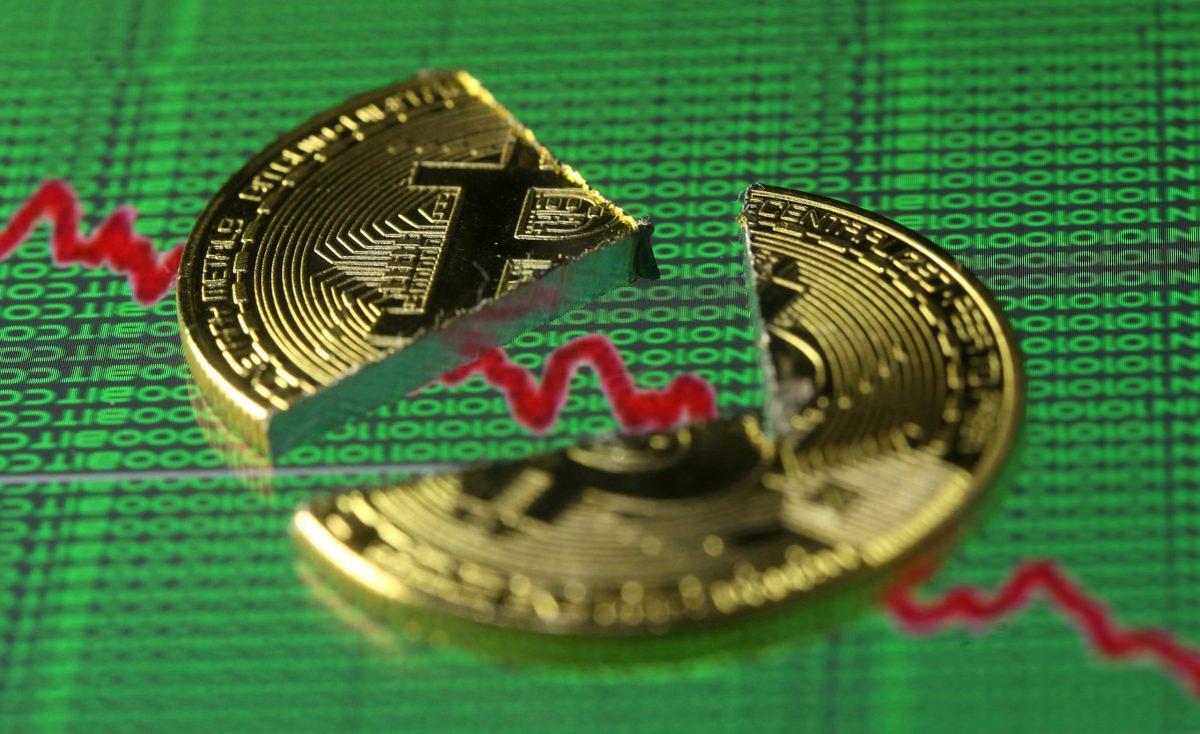A Small Group of 270 Addresses Are Responsible For 55% of All Crypto Money Laundered
More than half of the world’s cryptocurrency money laundering is done through a “surprisingly small group” of service providers, according to new research. This concentration could be a boon to law enforcement.
A report 270 Addresses Are All Cryptocurrency Money from Chainalysis, a blockchain investigation firm, revealed that criminals use a handful of exchanges and gambling platforms to launder their illegal cash. It found that 270 service deposit addresses accounted for 55% of all illicit cryptocurrency funds globally in 2020.
Also Read: How much does it cost to mint an nft
What is a Cryptocurrency Address?
A cryptocurrency address is a unique string of characters used to identify a wallet on the blockchain. It is similar to a real-world address, email or website and allows users to send and receive crypto funds.
All cryptocurrencies have addresses on the blockchain in some form. The most common is the Bitcoin address, but it is also possible to find addresses on other cryptocurrencies.
Every address is a unique combination of 26-35 alphanumeric characters, derived from the public half of an asymmetric key pair. Generally, they will start with the number 1 or 3 and end with bc1.
The shortest Bitcoin addresses are around 35 characters long but they can be longer depending on how much space is available for letters. Ethereum addresses are also long, but they have 40 hexadecimal characters and typically begin with “0x”.
Cryptocurrency addresses are generated by digital wallets or Bitcoin clients through asymmetric signature algorithms. These software generate a private key and then derive a public key from the private one. The public key is then paired with a checksum to prevent mistyping or tampering of the address.
Most addresses on a blockchain network are public, which means that anyone can view them using a block explorer. However, most users do not share their addresses with others for privacy reasons.
A new address is considered active only after it has completed a successful transaction on the blockchain. This can be done through either a wallet service provider or a crypto exchange.
There are many different types of crypto wallets, including digital wallets and hardware wallets. Both are free to use and offer a range of features.
Some of the most popular options include Binance, Trezor and Ledger. They offer a wide range of features and have super-safe security systems, such as device management, two-factor authentication (2FA) verification, and whitelisting to keep your coins safe.
Unless you have access to a custodial wallet, such as a bank account, you should never share your crypto wallet’s keys with anyone else. This is because if you share the private key with someone, they can steal your coins.
What are 270 Addresses Are All Cryptocurrency Money?
All cryptocurrency money is not created equal, though. Some cryptocurrencies have unique properties, such as being fungible or nonfungible (as in, if you swap a Bitcoin for a trade card, you get a completely different item).
For example, the Bitcoin blockchain has its own smart contract system that governs how it is mined and transferred. It also has a network of computers that can verify transactions and ensure integrity.
These properties can make or break the legitimacy of a digital currency. As a result, governments around the world are scrambling to enact laws and regulations that will prevent criminals from using crypto to launder their illicit wealth.
A new report by blockchain-focused research firm Chainalysis revealed that a surprisingly small group of 270 service deposit addresses has laundered more than half the global cryptocurrency that has been associated with criminal activity. In fact, these addresses have helped launder a whopping $1.3 billion worth of stolen digital coins in 2020.
The report, which was released at the Crypto Crime Conference in London this week, found that a small number of 270 service addresses have laundered a whopping 55% of the world’s cryptocurrency-related crimes, albeit with the help of a few cleverly disguised ancillary services.
These ancillary services include a smartwatch that lets you track your cryptocurrency movements and an app that allows you to send virtual gifts to friends. In addition, a smart wallet that uses blockchain technology to keep your digital currency safe and secure from hackers will soon be rolled out.
What are 270 Addresses for?
A small group of 270 Addresses Are All Cryptocurrency Money are responsible for 55% of the money laundered by criminals through crypto exchanges, according to a report by blockchain research firm Chainalysis. These addresses are connected to a number of over-the-counter brokers and nested services that help cybercriminals liquidate their stolen funds through a series of exchanges.
These 270 addresses receive around $1.3 billion of illicit cryptocurrency per year, which represents more than half of the value of all crypto money laundering activity in 2020. That figure has risen significantly since 2019 when the concentration of criminal crypto flows was 55 percent, according to Chainalysis’ 2021 Crypto Crime Report.
The 270 address group is also the source of much of the illegal cryptocurrency flowing out of the United States and to foreign countries. This is because they are the most active exchanges used to launder illicit funds, Chainalysis says.
Besides being the sources of illegal funds, the 270 address group is also one of the most active in attracting new customers. As a result, they are likely to be subject to increased AML/CTF monitoring and enforcement by law enforcement agencies.
Another important use of a 270 Addresses Are All Cryptocurrency Money is in a mail or envelope. These addresses include the name of the sender, the address of the recipient, and a ZIP+4 code that can be used to locate the delivery location.
These addresses are also recorded in the National level record in field 856 (Electronic Location and Access) subfield $m (Contact for access assistance). It is used to distinguish primary and additional (secondary) addresses, and to indicate the days of the week and global time zone.
It is vital for digital currency payment systems to identify and prosecute the operators of this surprisingly small group of service deposit addresses that are connected to money laundering. That could have a significant impact on the ability of cybercriminals to convert cryptocurrency into cash, which would help limit their illicit gains. This could also lead to the development of stronger and more effective AML/CTF measures in digital currencies.


